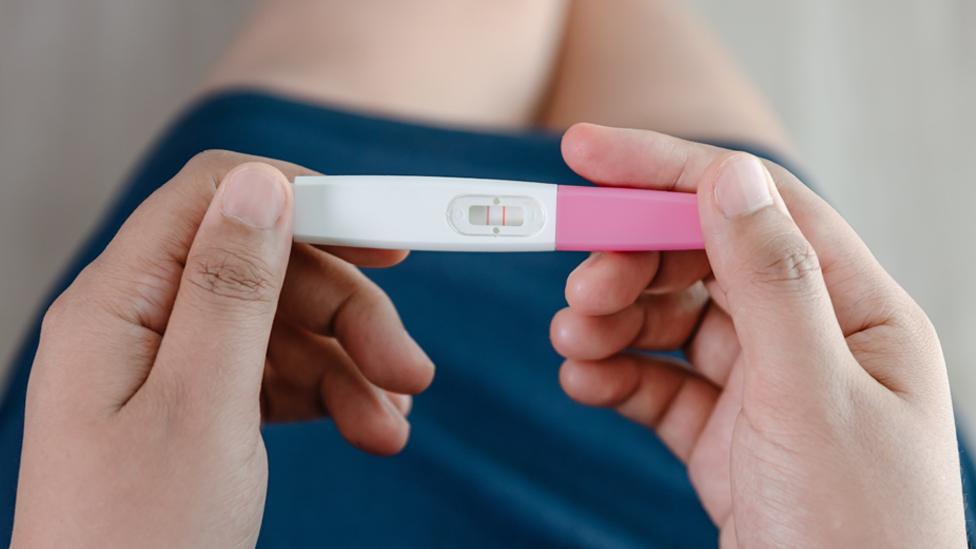Abortion clinic buffer zones will happen, says Sturgeon
- Published
The first minister convened a meeting to discuss options to protect women using clinics
The first minister has said legislation will be passed to enforce protester buffer zones at abortion clinics.
Nicola Sturgeon gave the Scottish government's backing to a member's bill protecting access to terminations.
At a summit in Edinburgh she said people were entitled to differing views on abortion, but women should not be intimidated while accessing healthcare.
Ms Sturgeon acknowledged that there would be complexities around making legislation stand up to legal scrutiny.
The new legislation would see 150m (164 yard) no-go areas put in outside health facilities.
The first minister had invited councils, charities, police, health professionals and campaigners to the summit on abortion care following calls for action over protests outside clinics.
Pro-choice campaigners want to ensure that women can access services without fear, harassment or intimidation.
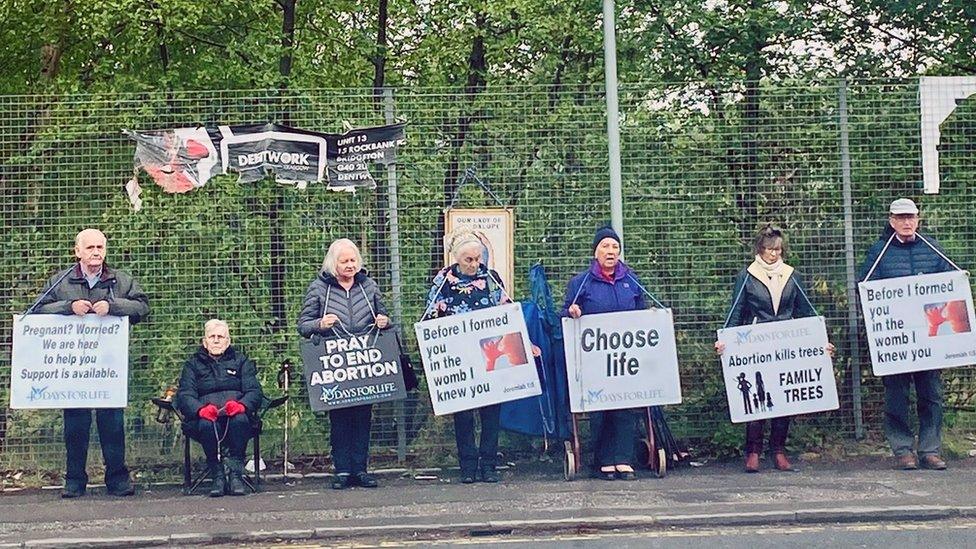
Anti-abortion protesters at the Queen Elizabeth University Hospital in Glasgow
Ms Sturgeon said she supported the member's bill, introduced by Green MSP Gillian Mackay.
She said: "There's no doubt in my mind we need to aim for legislation in the long term.
"But we need to ensure we get the balance of that right so that it would be capable of withstanding any human rights challenge.
"There's further action we can take, working with councils and the police in the short term, to make sure that women do have access to healthcare.
"There are different views on abortion - we live in a democracy and people are free to have different views on abortion - but what I don't think any of us are free to do is to impede women's right to access healthcare without intimidation and harassment."
'Invasion of privacy'
The summit follows recent reports of escalating incidents at the Sandyford clinic in central Glasgow.
Women's Health Minister Maree Todd, told BBC Radio's Good Morning Scotland programme that patients had told her that protests were intimidating.
She said: "Everybody who is accessing healthcare at these sites has to run the gauntlet past them
"We have seen an escalation in behaviour. We have seen really, truly offensive signage being held up, voice amplification across the front of the building.
"People are unable to ignore the protests and we have potentially seen the use of bodycams which is a real invasion of privacy."
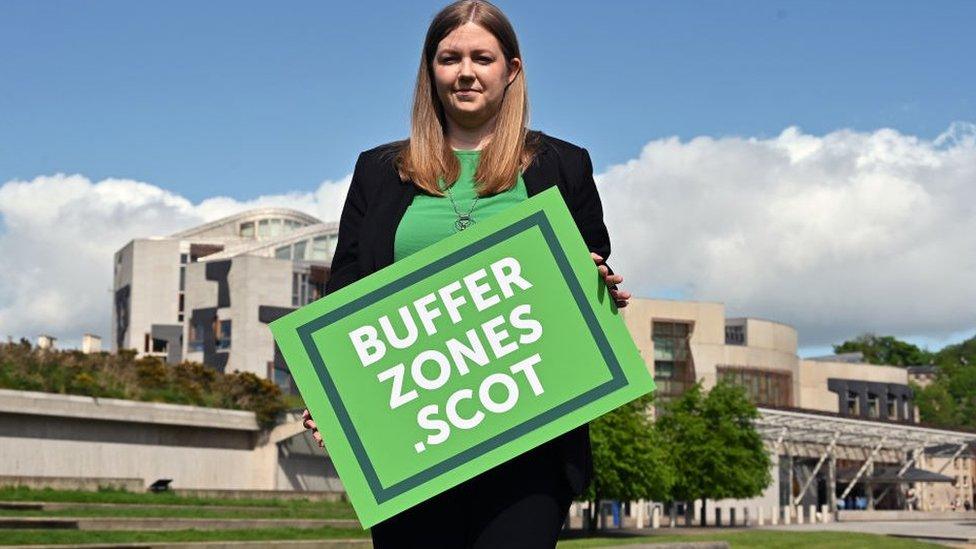
Green MSP Gillian Mackay has introduced a member's bill
Ms Sturgeon faces some opposition from within her own party. MSP John Mason said he was "not convinced" the issue was a problem.
He said the protests he had seen were not intimidating and that people did not have to go near them.
He said: "We have to listen to people's experience but there's two types of experience - people who say they are feeling harassed and intimidated, and people who say they are being coerced into abortions and are not being given the pros and cons."
Anti-abortion groups, such as the Society for the Protection of Unborn Children, have said they would continue to defend the right to pray in public and offer help to women outside clinics.
Lois McLatchie, from the Christian campaigning group ADF UK, told the BBC her volunteers were offering support and advice on alternatives to abortion.
She added: "Buffer zones ban legitimate offers of help and silent prayer and mean women may not be able to access those other options - practical help or financial help.
"Women have the right to hear about these options at the point of need and it is patronising of the government saying women don't want to hear this."
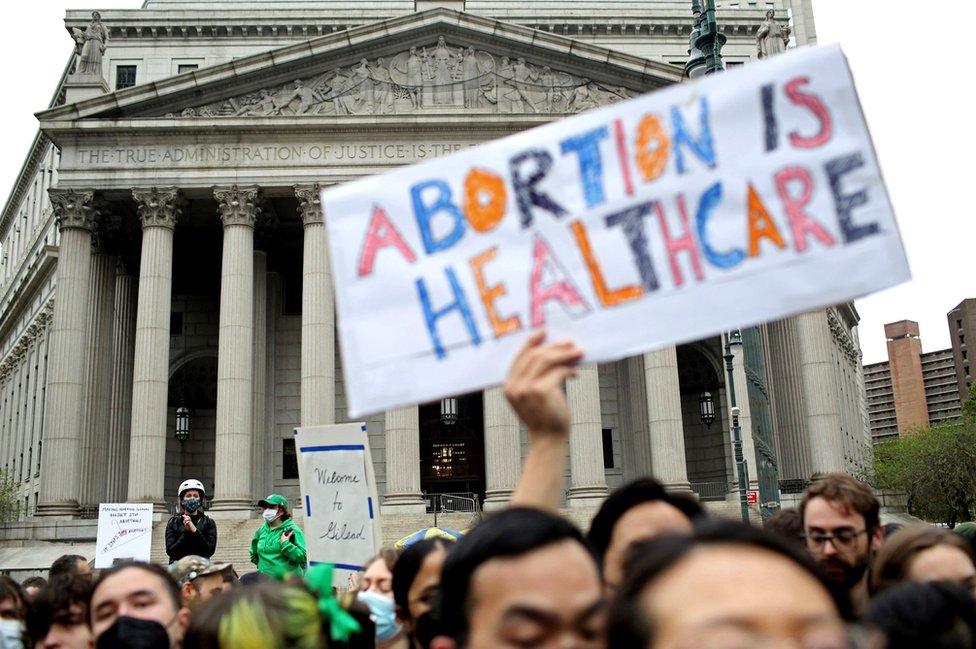
There are fears the recent reversal of abortion rights in the US will "embolden" protesters in Scotland
However, Alice Murray of pro-choice group Back Off Scotland - said there was a misunderstanding from some anti-abortion campaigners over what happens at clinic appointments.
She said: "Women don't need to be offered the other side by strangers outside. You are talked through the process and your options by a specific healthcare provider.
"We believe it should be the NHS and healthcare providers who give that information. A lot of the leaflets we see handed out outside these clinics have misinformation on them.
"These people outside can't be trusted to give accurate advice or support. It's highly inappropriate."
The summit came after the US Supreme Court struck down the landmark Roe v Wade decision, transforming abortion rights in America and allowing individual states to ban the procedure.
Green MSP Gillian Mackay, who introduced Scotland's members' bill, said the US move would "stop safe abortions and put lives at risk."
She said: "Here we need to continue to fight for progress. That means buffer zones, telemedical abortion and services safe and accessible for all.
"There is no place for the type of intimidation and harassment we are regularly seeing outside these healthcare facilities at the moment.
"Both healthcare staff, and those accessing services, have relayed horrifying stories of the impact this harassment can have."
- Published9 May 2022
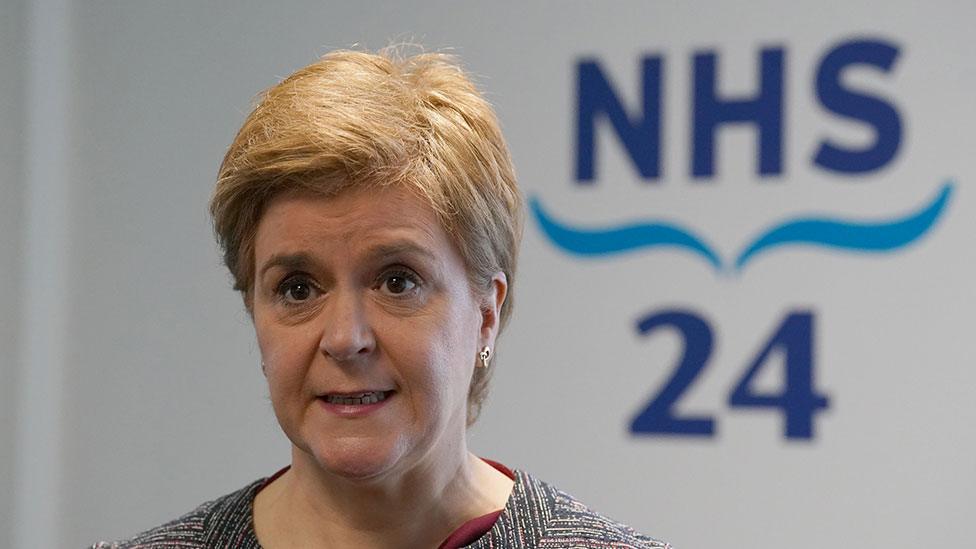
- Published7 June 2018
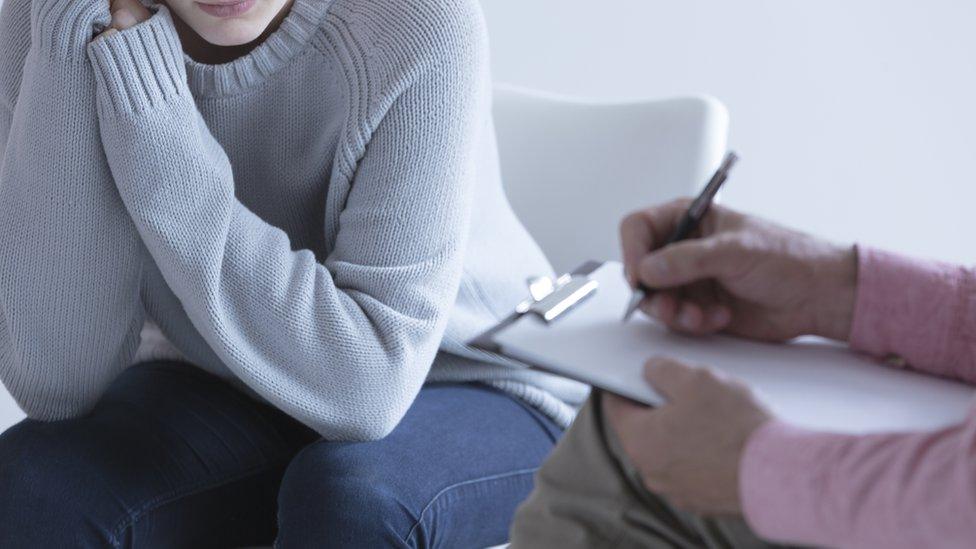
- Published30 May 2022
